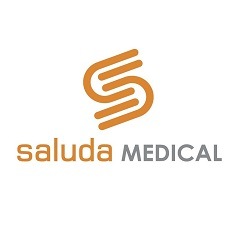 Saluda Medical has announced the recent presentation of two abstracts analysing biomarker-based spinal cord stimulation (SCS) data at the 2024 American Society of Pain and Neuroscience (ASPN) annual conference (11–14 July, Miami, USA).
Saluda Medical has announced the recent presentation of two abstracts analysing biomarker-based spinal cord stimulation (SCS) data at the 2024 American Society of Pain and Neuroscience (ASPN) annual conference (11–14 July, Miami, USA).
The abstracts—which were among 10 total abstracts featuring Saluda’s clinical data presented at ASPN 2024—centred on evidence from patients treated with the Evoke system in clinical studies. According to a company press release, key takeaways from these two abstracts demonstrate the significance of objective neurophysiological measurements in SCS with evoked compound action potential (ECAP) dose-controlled closed-loop therapy.
The first of these abstracts, titled “Maximal analgesic effect attained by the use of objective neurophysiological measurements with ECAP dose-controlled closed-loop SCS” and authored by Robert Levy (Marcus Neuroscience Institute, Boca Raton, USA) was based on a paper recently accepted for publication in the journal Neuromodulation: Technology at the Neural Interface. This abstract was awarded “Top Abstract” out of more than 300 clinical abstracts at ASPN 2024, and featured as an oral presentation.
The abstract sought to characterise the biomarker-based dose-response relationship that produced a patient’s maximal analgesic effect. The analysis showed a statistically significant relationship between usage over ECAP threshold, ECAP dose and pain relief across the patient population. In addition, the analysis demonstrated that the clinical benefit observed in the trial period was reproduced following permanent implantation when the neurophysiological metrics remained consistent.
The second abstract highlighted in Saluda’s recent press release was titled “Identifying SCS trial responders immediately after postoperative programming with ECAP dose-controlled closed-loop therapy”. Authored by Jason Pope (Evolve Restorative Center, Santa Rosa, USA) and based on a recent published paper from Pope et al, this abstract also featured in an oral presentation.
Its purpose was to analyse the benefits of closed-loop, dose-controlled SCS as it relates to trial outcomes, and the predictability of long-term success. The analysis compared neurophysiological and certain patient-reported metrics between the day of the trial procedure, or day zero, and the end of the trial. Success criteria included confirmation of neural activation and dose-controlled closed-loop therapy, patient reported pain relief, functional improvement and willingness to proceed. The analysis measured patients who passed all success criteria on day zero and demonstrated that these success criteria had a 98% positive predictive value for being responsive to therapy at the end of the trial period.
“Saluda’s scientific presence at this year’s ASPN conference is reflective of our commitment to elevate SCS therapy with best-in-class clinical evidence grounded in real-world data and our double-blinded EVOKE RCT [randomised controlled trial], and we sincerely thank our clinical investigators and their patients,” said Jim Schuermann, president and chief executive officer of Saluda. “These two abstracts, highlighting biomarker-based measurements, in particular are significant to the field of SCS. We believe that the Evoke system’s ability to objectively measure and respond to these neurophysiological metrics allows it to improve the reliability and reproducibility of patient outcomes from the trial period through the long-term follow-up.”












